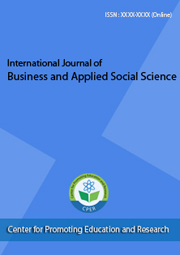current
Table of Contents
Articles
Author(s): Michael Dunlop, MBA, Ed.D.
Abstract:
Interdisciplinary faculty collaboration is an effective technique for preparing college students for the demands of working in contemporary organizations. Higher education institutions should encourage and support faculty from different academic disciplines to educate students from interdisciplinary perspectives. When faculty from multiple academic disciplines collaborates, they are not only teaching students from new viewpoints, but they are also modeling the importance of communication, teamwork, diversity, and how to critically think from a holistic approach. This case study explored the synergy that exists between the academic disciplines of psychology and business. Twenty-five senior psychology students were introduced to a self-reflection assessment and an interactive discussion on motivation in the workplace from a business perspective. This was accomplished by illustrating the complementary motivational theories relating to Maslow’s Needs Hierarchy and Alderfer’s ERG Theory. Students’ receptivity to these different, yet harmonizing, theories further demonstrated that various perspectives can still share several commonalities. Contemporary organizations increasingly value employees with diverse skill sets. Superseding a single discipline in favor of a multiple discipline approach highlights the value that interdisciplinary collaboration can provide to organizations as they achieve their goals and fulfill their respective mission and longer-term vision statements.






